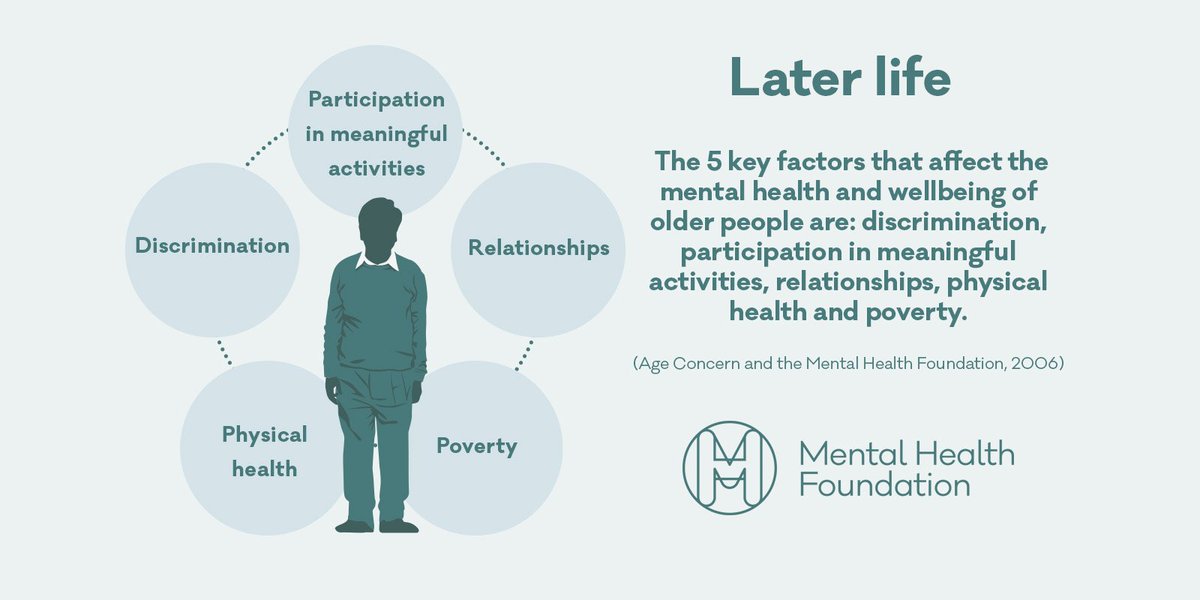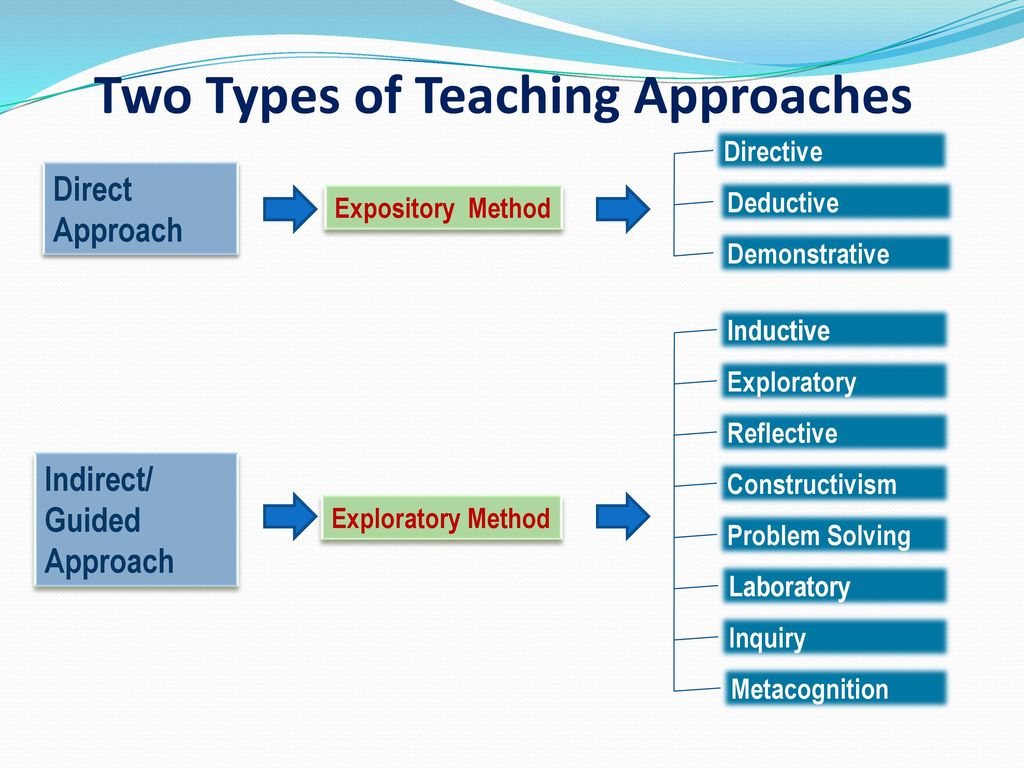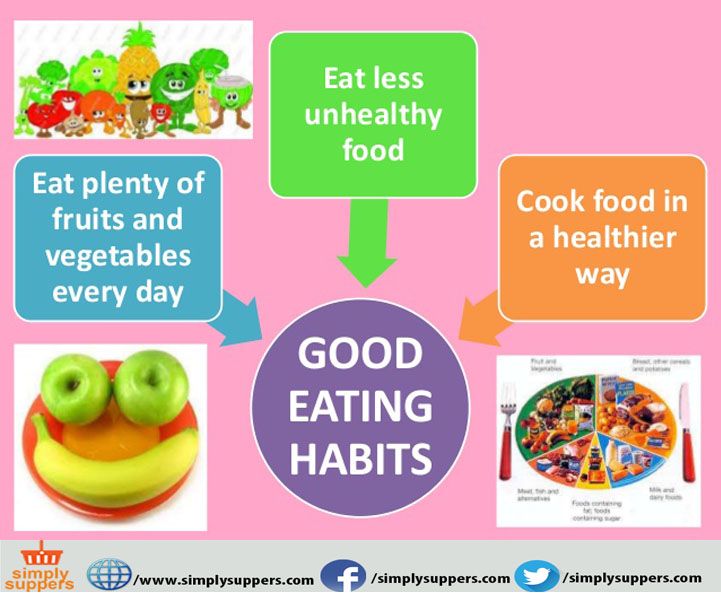Are you born introverted or extroverted
10 Signs Your Baby (or Toddler) Is an Introvert
Source: Unsplash
As a parent, you’re always looking for little clues that reveal your child’s personality. Does he have a natural sense of humor, or is he more serious? Is she a daredevil, or does she play it safe? Is your child an introvert or an extrovert?
According to Dr. Marti Olsen Laney in The Hidden Gifts of the Introverted Child, temperament is hard-wired. That means, although we can grow and change over time, we're born as either introverts or extroverts. And you can tell fairly early on—Laney says children begin to show signs of introversion or extroversion as early as four months of age.
Here are 10 signs that your baby or toddler is an introvert.
Signs Your Baby or Toddler Is an Introvert
Your child might be an introvert if he or she is...
1. Curious about the world but cautious about exploring it
Many introverts have sharp minds and are naturally curious. They wonder how the world works or what makes a person tick. They're not afraid to ask the big questions, as they seem to be on a perpetual quest to understand why.
But introverts also tend to be observers, preferring to watch and reflect rather than jump in and do. Your child might be an introvert if he or she hangs out on the edges of the playgroup, preferring to watch a while before joining in. Generally, introverted children like to play it safe rather than take risks. They look before they leap and think before they speak.
2. Sensitive to their environment
As a baby, your child may have cried or thrashed around when in places where there was lots of noise or activity. In 2004, Harvard psychologists Jerome Kagan and Nancy Snidman found that babies who are very reactive to unfamiliar stimuli tend to grow up to be shy, timid, or introverted adults. As your child gets older, he or she may shut down, cling to a “safe” person, or have meltdowns in the face of crowds, new people and situations, or busy environments.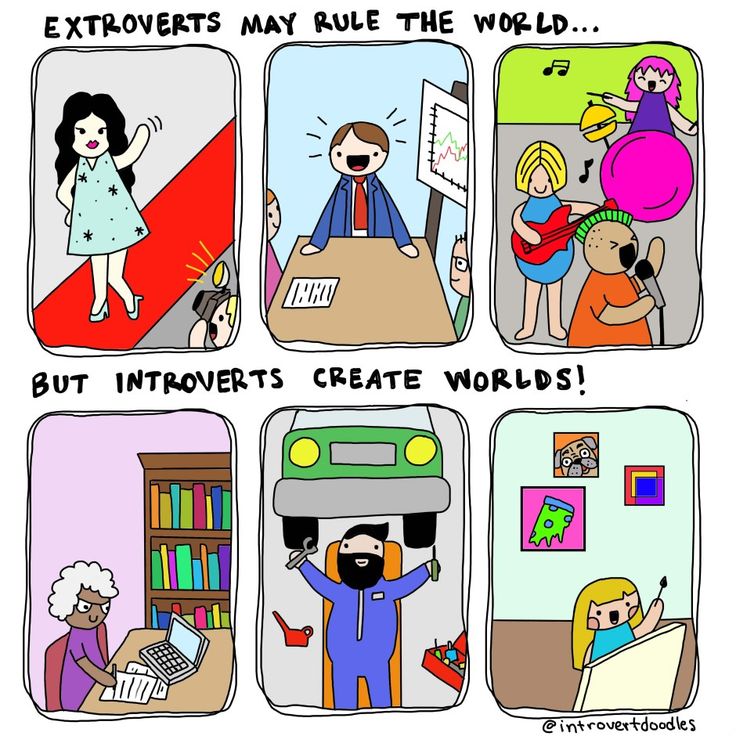 Compared to extroverts, introverts are more easily drained by stimulation.
Compared to extroverts, introverts are more easily drained by stimulation.
3. Had low birth weight or was born pre-term
A study published in the Archives of Disease in Childhood — Fetal & Neonatal Edition found that babies born low-weight or pre-term are more likely to be introverts.
4. Clams up when meeting someone new but comes alive at home
Around an unfamiliar person, your toddler avoids eye contact and goes quiet. Private by nature, introverts tend to need time to warm up to new people; your child is no exception. However, at home, where your child feels comfortable, he or she won't hesitate to tell you a story or be silly. It's almost like your toddler is a different person around you and the family; his or her real personality comes out.
5. Easily becomes absorbed in solo play
Many introverted children have a strong imagination and a rich inner world that is alive and present for them.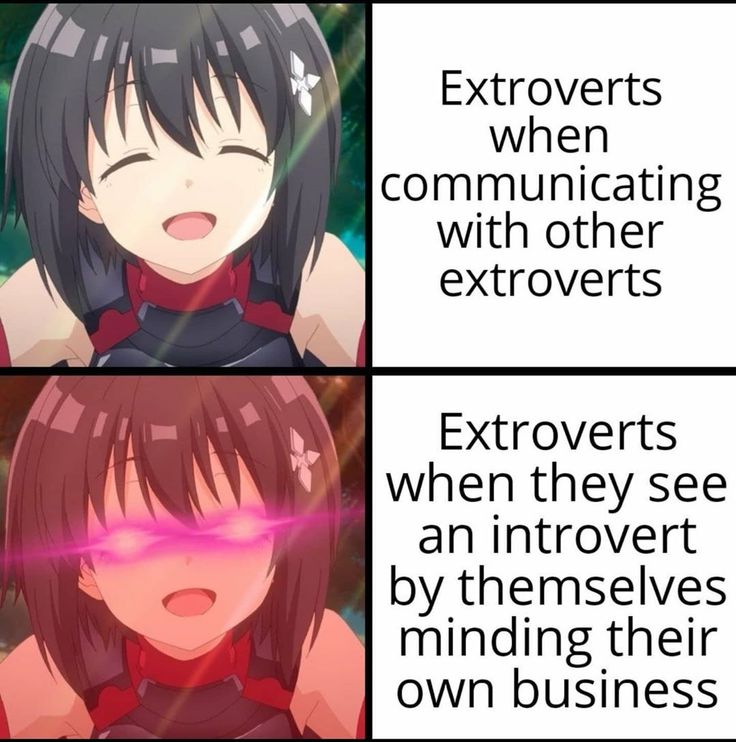 If your toddler spends hours lost in focused play with a certain toy, he or she might be an introvert. Older children will spend time in their bedrooms with the door closed, doing solitary activities like reading, drawing, or playing computer games.
If your toddler spends hours lost in focused play with a certain toy, he or she might be an introvert. Older children will spend time in their bedrooms with the door closed, doing solitary activities like reading, drawing, or playing computer games.
6. Has a meltdown after a play date or busy day
Introverts get easily drained by socializing and need downtime to recharge their energy. When your kid spends time with other children, notice how they react. Do they seem tired, cranky, or overwhelmed after a playdate—even if they had fun? If so, they might be an introvert. Similarly, your child might cry or have a meltdown after a very busy day with no breaks.
7. Struggles with separation anxiety
Not all introverted children have separation anxiety, but it's quite common for them to experience it. Introverts, in general, are more at-risk for anxiety and depression than extroverts, and children are no exception. What happens when you drop off your toddler at preschool? Does he or she cry, cling to your leg, and beg you not to leave—although the other kids seem fine? If so, your child might be an introvert experiencing separation anxiety.
8. Engages with the deeper aspects of life
All children ask questions. But an introverted child might surprise you with the depth of their thinking. They may seem older than they really are, somehow possessing profound insights beyond their years. Astonishingly, even at a young age, many introverted children can step outside themselves and reflect on their own behavior.
9. Struggles to express themselves
By definition, introverts are inward personalities. They can struggle with word retrieval, because, according to Laney, they may rely more on long-term memory than short-term memory. When speaking, your child may pause frequently, searching for just the right word. They may get frustrated at not being able to express what they mean. As toddlers, they may be drawn to stories, books, and art because these give them a language to understand and express what they're thinking and feeling.
10. Relies on their inner resources
Generally, introverted children rely on their inner resources to guide them rather than constantly turning to others. “In their private garden away from the material world they concentrate and puzzle out complex and intricate thoughts and feelings,” writes Laney. The downside is they may not ask for help when they would benefit from some adult guidance. The upside is they tend to be independent and self-directed.
“In their private garden away from the material world they concentrate and puzzle out complex and intricate thoughts and feelings,” writes Laney. The downside is they may not ask for help when they would benefit from some adult guidance. The upside is they tend to be independent and self-directed.
Celebrate Your Introverted Child
Introversion is genetic, and introverts will stay introverts for life (in fact, people tend to get even more introverted with age). This means — although your child may surprise you at times — he or she will generally always have a preference for calm, minimally stimulating environments (and ample alone time).
Nevertheless, as the parent, you play a huge role in shaping your child’s personality, and science backs this up. Kagan and Snidman found that parents who were protective of timid children strengthened their shyness. However, when parents encouraged some sociability and boldness, the children became teenagers who showed less inhibition than their more fearful counterparts.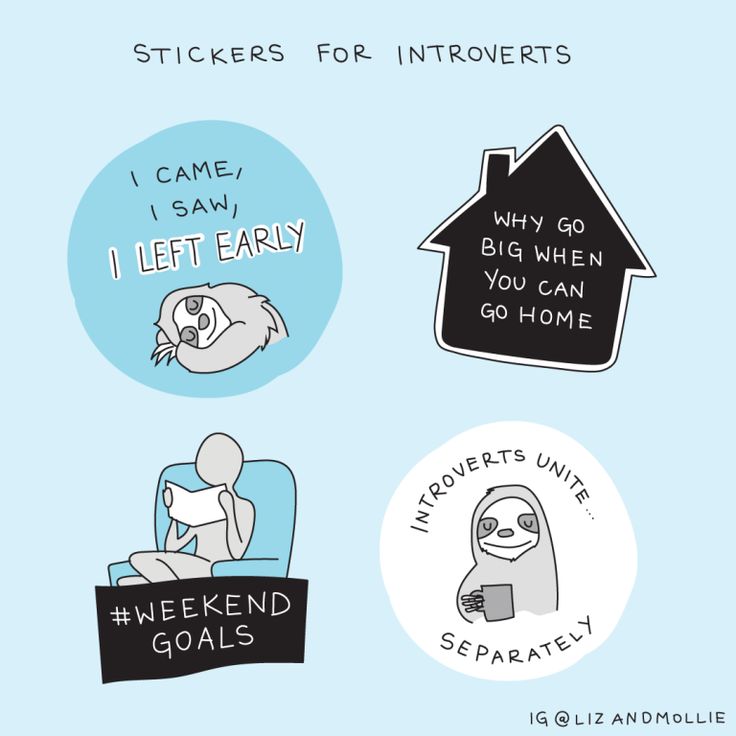
If you’re raising an introverted child, celebrate their quiet ways. Teach them to manage their energy and not feel guilty about needing time alone.
But also help them gently push their boundaries. The world could use a little more of what they have to give.
This post also appeared in my community for introverts, Introvert, Dear.
More resources for parents:
- 15 Things You Should Never Do to Your Introverted Child
- Why Do Introverts Love Being Alone? Here's the Science
- 15 Things You Must Understand If You’re the Parent of an Introvert
Are You Born an Introvert, or Do You Become One?
Introverts are finally getting our time in the sun. There are more websites, books, and communities for introverts than ever before—enough that young introverts can grow up understanding their introversion, instead of feeling “wrong” like I did as a kid. But there’s no shortage of people who still don’t get it. Anytime I mention I’m an introvert, someone asks something like, “Why can’t you just learn to be social like everyone else?”
That viewpoint is backwards, but it does raise a good question.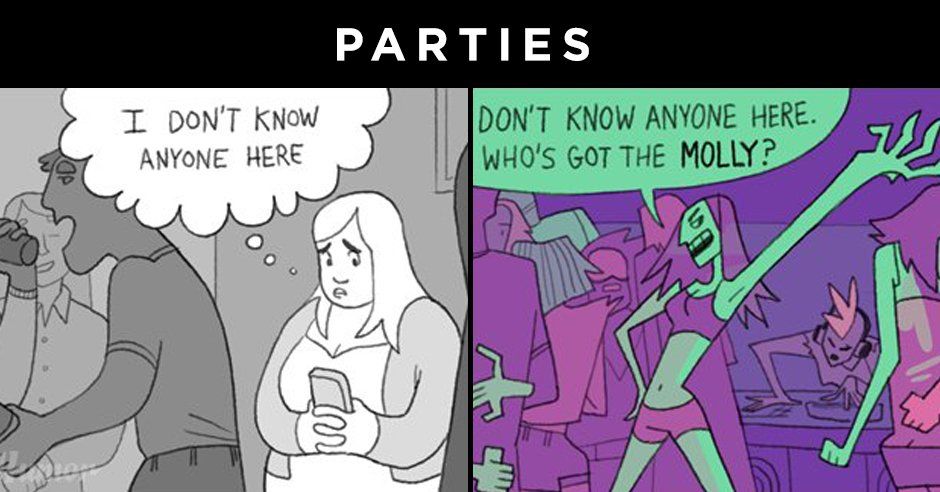 Do people “learn” to be introverts as they grow up, or are we introverts from birth? In other words, what makes you an introvert—your genes, your upbringing, or some mix of both?
Do people “learn” to be introverts as they grow up, or are we introverts from birth? In other words, what makes you an introvert—your genes, your upbringing, or some mix of both?
The Science of Young Introverts
To answer this question I turned to Dr. Marti Olsen Laney’s book The Hidden Gifts of the Introverted Child: Helping Your Child Thrive in an Extroverted World. Laney gives a detailed rundown of what we know about young introverts, including the specific factors that cause them to be introverted in the first place.
Like most questions of nature versus nurture, Laney tells us that the answer is a little bit of both:
“Yes, children are born with an innate temperament. And yes, parents are vitally important to how that temperament is nurtured.”
But she emphasizes that introverts are (mostly) born that way. Specifically:
- The degree to which you are introverted or extroverted is influenced by genetics.
- Out of all the personality traits that have been studied, introversion/extroversion is one of the most strongly hereditary ones.
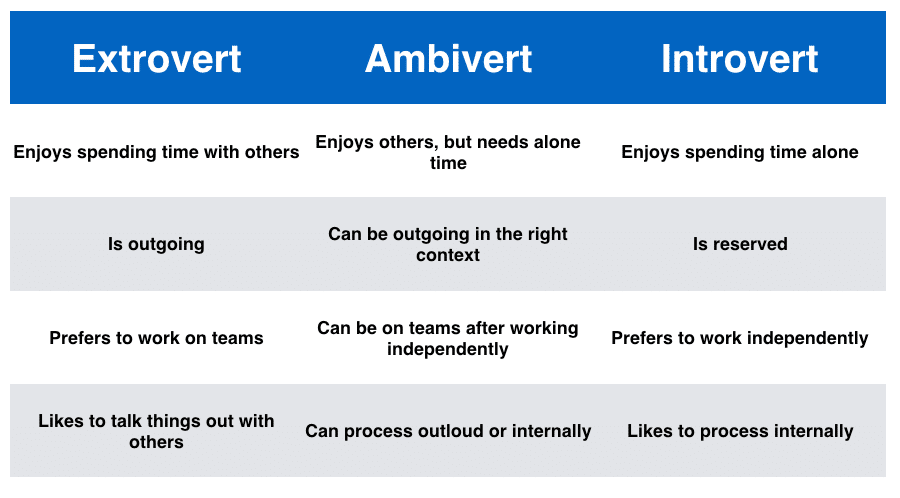
- Nonetheless, a lot of environmental factors—like how you’re raised—influence it too.
These aren’t guesses on Laney’s part. She pulls together some of the best neurological research on introverts to show exactly how genetic it is—and why some factors can defy your genetic “programming” to change your disposition.
The Genetic Basis for Introversion
Laney says the basis of being an introvert lies in our biochemistry. Human brains have a mix of over 60 neurotransmitters, chemicals that determine exactly how the brain works. While those chemicals are largely the same from person to person, we each have slight differences—our own “recipe.” Your recipe is determined by your genes, and is with you from birth. It also determines many personality traits, such as your tendency toward introversion or extroversion.
This correlation is so strong that Laney says children show their introversion/extroversion tendency from the moment they’re born.
The most important of these neurotransmitters is dopamine, which rewards you for pursuing external rewards. Introverts’ brains are far less driven by dopamine. We don’t get the buzz from it that extroverts do, so we don’t seek as much external stimulation.
Introverts’ brains are far less driven by dopamine. We don’t get the buzz from it that extroverts do, so we don’t seek as much external stimulation.
Our dopamine sensitivity is an example of our neurotransmitters in action—and it’s determined by our DNA.
How Genetic ‘Set Points’ Make You Flexible
Introversion isn’t totally genetic. It gets influenced by your environment at a young age, and our genes allow a certain amount of flexibility in response. This happens through “set points,” which are the upper and lower limits of how much extroversion your brain can handle.
Laney compares these set points to setting a temperature range on a thermostat. You might program your thermostat to keep your house between 68 degrees and 74 degrees Fahrenheit. Within that range you’re comfortable and no climate control is needed. But if it gets too cold or too warm, the heater or AC kicks on and you have to spend energy to get back to the comfort zone.
The brain works the same way.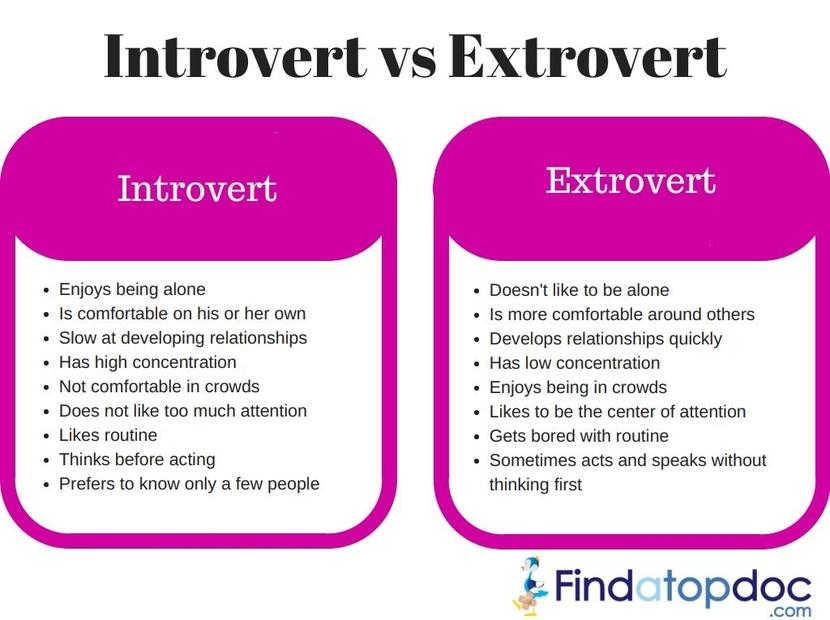 As an introvert you might want more social time one day and less another day, and as long as you’re within your “set points” you’re okay. But if the stimulation takes you beyond your upper set point—maybe by going to a big birthday party—we all know how drained you’re going to feel.
As an introvert you might want more social time one day and less another day, and as long as you’re within your “set points” you’re okay. But if the stimulation takes you beyond your upper set point—maybe by going to a big birthday party—we all know how drained you’re going to feel.
That means two introverts with the same genetic disposition could come across quite differently. One might stay closer to the high-stimulus end of their comfort range, while another stays cautiously at the low end. These behaviors are largely learned through experience. If a child gets enough positive experiences with social time, they might enjoy pushing the top of their range, even though they’re an introvert. A child who has negative experiences could develop more reclusive, quieter ways.
A Portrait of Three Kids
To see how this works, let’s look at three hypothetical children. All three are introverts, but they’re not all the same:
- Jen and Amanda are identical twins.
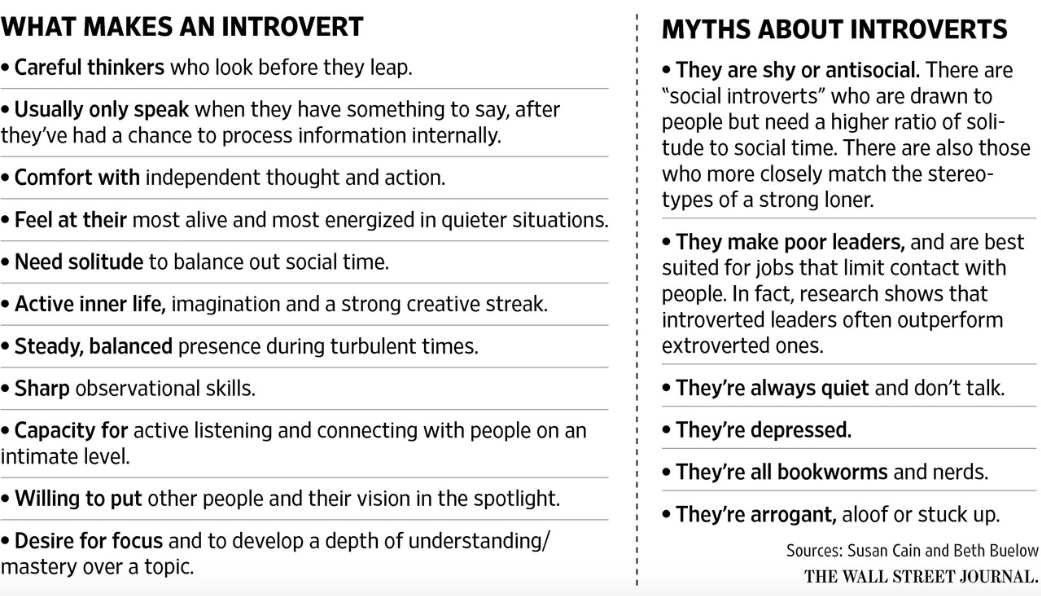 They have the same DNA and very similar brains at birth. Both show signs of being introverted, but their “set points” are quite wide. They could act more social or more introverted on any given day.
They have the same DNA and very similar brains at birth. Both show signs of being introverted, but their “set points” are quite wide. They could act more social or more introverted on any given day. - Matthew is also introverted from a young age. However, his brain has fairly narrow set points, much narrower than Jen and Amanda’s.
Despite being all introverts, the children turn out very differently.
Jen has some early positive experiences that reward social activity. She’s older than Amanda by several hours, and people always ask if she’s going to be the “leader” of the two. When she does something bold or showy, adults laugh and cheer. This positive encouragement makes it fun to stay toward the top end of her set point range and be a social introvert.
Amanda has the opposite experience. When she does something showy, adults say she’s copying her sister. She doesn’t find it rewarding to come out of her shell as much. By the time she’s old enough for preschool, she isn’t as excited about making friends as Jen.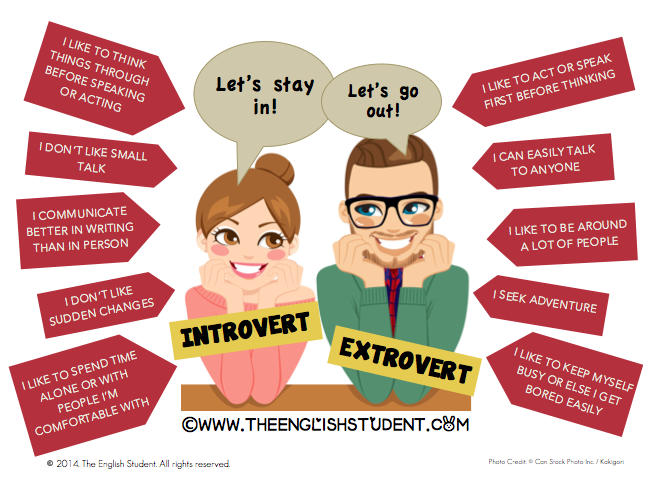 Other kids stare at the twins, and she takes this attention as negative. She’s happier when she stays near her lower set point. She’s considered the shy one.
Other kids stare at the twins, and she takes this attention as negative. She’s happier when she stays near her lower set point. She’s considered the shy one.
Matthew has a different upbringing. He’s an only child and his parents give him a lot of positive attention. They can see his introversion early on, and instead of being critical, they try to gently encourage him in social situations. They take him to the playground, join a play group with other families, and put him in a private preschool that encourages creativity.
But Matthew stays introverted. Even though his group experiences are positive, he has a very low set point for external stimulus. He comes back from play dates cranky or sleepy. He’s well adjusted socially, but he prefers inner, imaginative activities to people time.
So Are You Born an Introvert, or Not?
These children are imaginary, but they correspond to patterns that many of us have lived in real life. Your genes give you a “range” of introversion.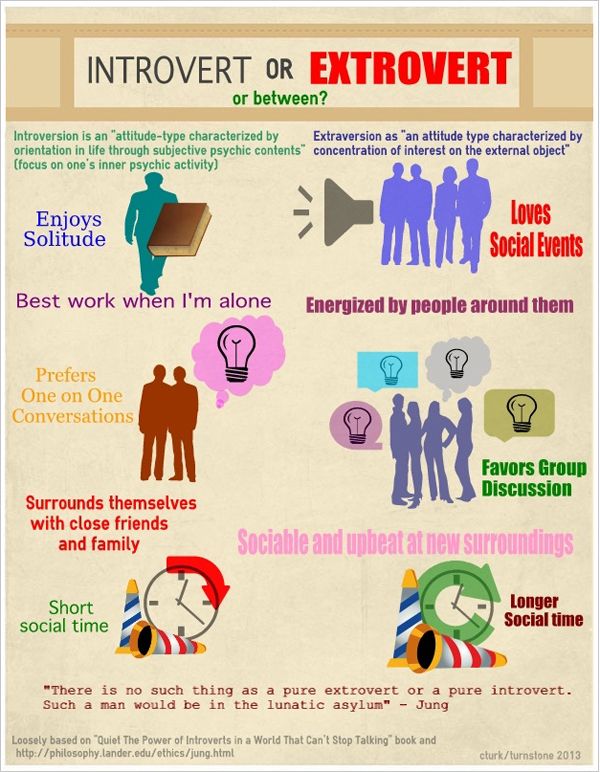 A wide range could be heavily influenced by how you were brought up, but a narrow range means upbringing won’t change you as much. This is why Laney says the answer to the nature vs. nurture question is, “Yes… and yes.” Your genes make the choice, but they can make you flexible, too.
A wide range could be heavily influenced by how you were brought up, but a narrow range means upbringing won’t change you as much. This is why Laney says the answer to the nature vs. nurture question is, “Yes… and yes.” Your genes make the choice, but they can make you flexible, too.
What’s clear is that your preference for introversion or extroversion gets fixed early on. As much as your experiences might shape you, Laney says most children stay true to whichever preference they showed in the first four months of life.
I can clearly see experiences in my own life that helped give me my strong introvert tendencies, such as being a misfit at school. I also wonder if I might have a “narrow” range of set points, more like Matthew than Jen and Amanda, as I can happily spend weeks at a time with no social contact.
Did you enjoy this article? Sign up for our newsletters to get more stories like this.
Read this: I Wasn’t Living My Life Until I Learned to Stay Home
90,000 Extrovert parents and introvert children.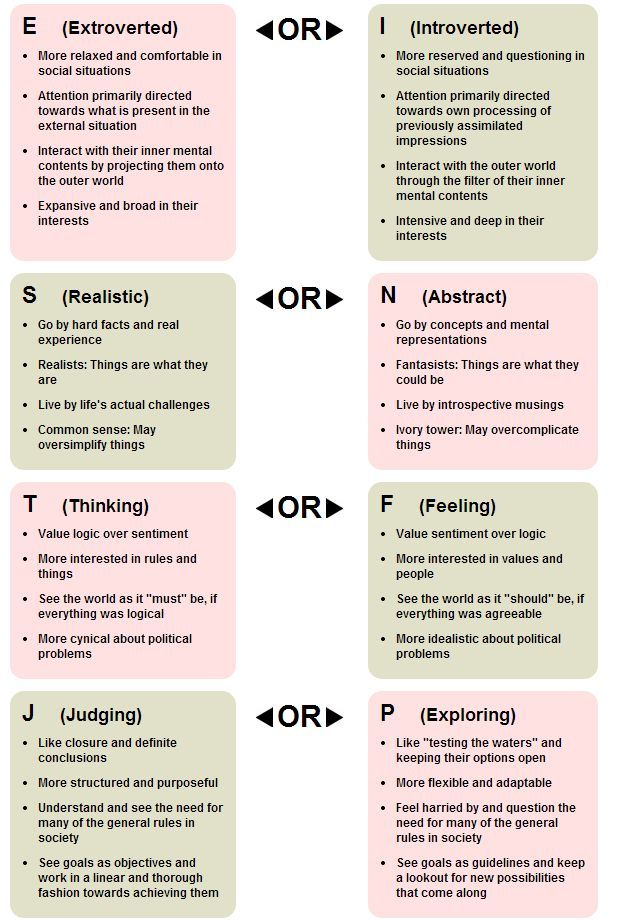 My child is an introvert [How to identify hidden talents and prepare for life in society] Extrovert parents and introvert children. My child is an introvert [How to reveal hidden talents and prepare for life in society]
My child is an introvert [How to identify hidden talents and prepare for life in society] Extrovert parents and introvert children. My child is an introvert [How to reveal hidden talents and prepare for life in society] WikiReading
My child is an introvert [How to identify hidden talents and prepare for life in society]
Laney Marty
Content
Extrovert parents and introvert children
Sometimes an extroverted parent may wonder if everything is in order with the health of his introverted child. “Gaby worries me a lot,” says the mother of an 11-year-old girl. She has only two friends, and she is content; And I would like everyone to like it. She spends a lot of time alone. At her age, I went in for sports, attended clubs and participated in all school activities. I'm afraid I missed something. Sometimes it seems to me that Gaby is not very well, depressed; or maybe she has something more serious - like autism.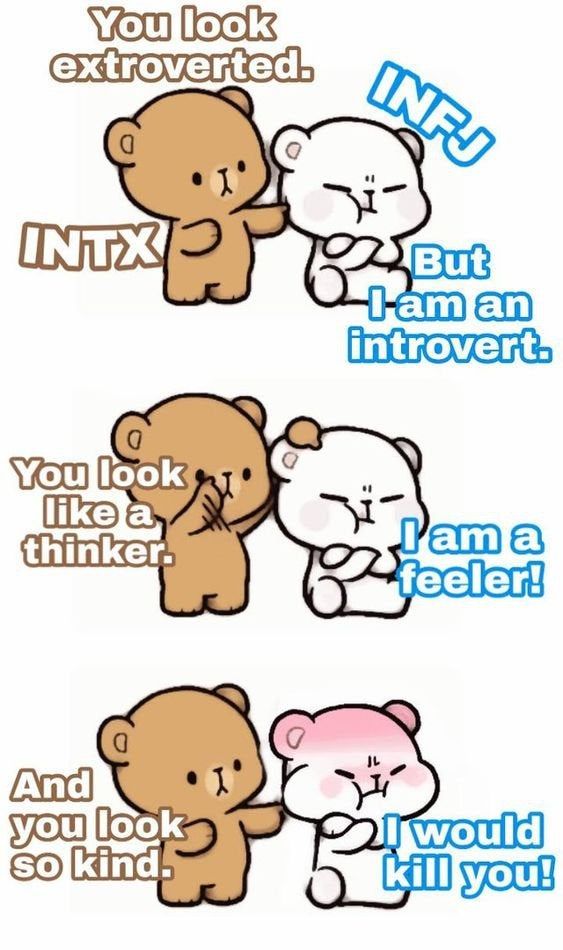 I want her to be more honest with me."
I want her to be more honest with me."
Extrovert parents go out of their way to make their little introvert more active. But they are just wasting their time. By the way, an introverted child can also push his extroverted parents to the brink of nervous exhaustion. Parents believe that the tortoise slowness of the child prevents him from doing everything on time. He gets on their nerves with his meticulousness and endless "why", "why" and "how". Children-"insiders" with enviable stubbornness seek answers to questions that parents-"outsiders" simply never think about, because they are not inclined to reflection and do not like to bother themselves with finding answers. In addition, they are embarrassed to talk about many topics. The behavior of introverted children often frightens or annoys extroverted parents: “What difference does it make, he doesn’t need to know this,” “Why can’t she be like everyone else?” or "We don't have time to read about it."
In their quest to get things done, extroverted parents don't find time to talk to their children.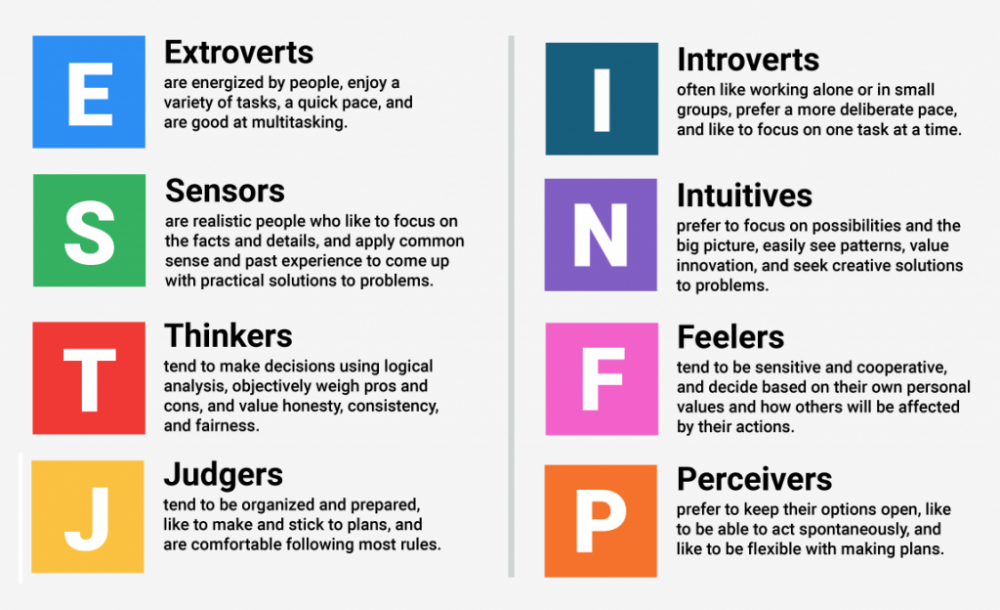 Communication occurs in fits and starts, and the introverted child begins to feel as if the parents who are always in a hurry simply do not care what he can tell them. Extroverted parents are usually very energetic, easily go through life, do everything in time and enjoy it. They consider themselves good parents: why, their children “do” so much! But they do not notice that from such a race their children wither before their eyes.
Communication occurs in fits and starts, and the introverted child begins to feel as if the parents who are always in a hurry simply do not care what he can tell them. Extroverted parents are usually very energetic, easily go through life, do everything in time and enjoy it. They consider themselves good parents: why, their children “do” so much! But they do not notice that from such a race their children wither before their eyes.
Extroverted parents don't understand that their introverted children need to think things through before making a decision. "So decide, for God's sake, what you want to do!" The slowness of introverts causes bewilderment in extroverts, since they associate the speed of decision-making with mental abilities. Extroverted parents are also puzzled by inhibited emotional responses. They are offended if the children do not show their feelings: “Why didn’t you say that you didn’t like visiting? You never tell me anything!”
An extroverted parent may - quite unwittingly - seem too pushy to their little introvert.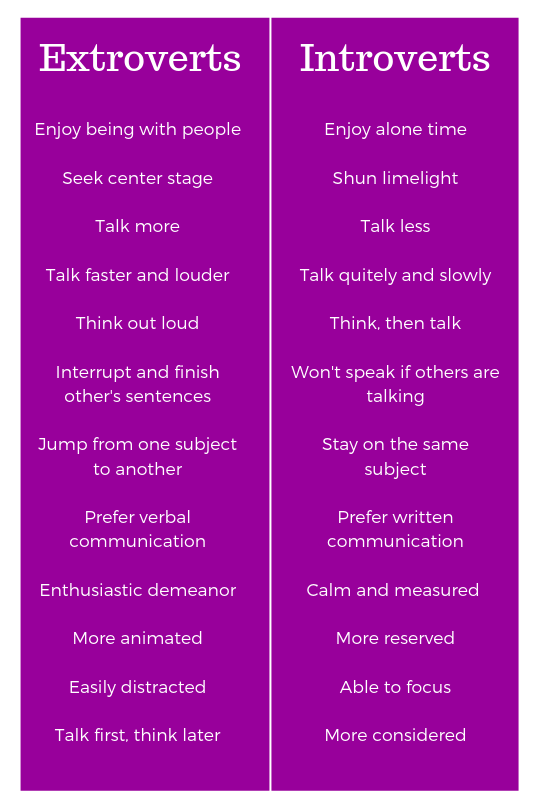 He can enter the child's room without knocking, interrupt his activity and talk about something of his own - while he will try his best to adapt to such interference. The child is lost if he is suddenly “pulled out” of deep thought. An extroverted parent is likely to take this as a personal insult if they are not familiar with the intricacies of their child's mental organization. Not knowing about the baby's need for privacy and personal space, he may decide that the child does not accept or even love him.
He can enter the child's room without knocking, interrupt his activity and talk about something of his own - while he will try his best to adapt to such interference. The child is lost if he is suddenly “pulled out” of deep thought. An extroverted parent is likely to take this as a personal insult if they are not familiar with the intricacies of their child's mental organization. Not knowing about the baby's need for privacy and personal space, he may decide that the child does not accept or even love him.
Sadly, sometimes extrovert parents just stop paying attention to little introverts and wave their hand at them, showing a preference for more energetic extrovert children. “I love Robbie more, I like his courage”, “Peter is very slow. I feel like I'm dragging him along like a sack of potatoes. He has to be driven all day.”
True, these relationships also have a downside. Gaby's mom put it this way: “I think it's easier for her now because I've become more patient and help her connect with people. We better talk when we are doing something together: walking, having lunch, driving in a car or digging in the garden. At such moments, it is easier for me to endure the long pauses and silence of my daughter.
We better talk when we are doing something together: walking, having lunch, driving in a car or digging in the garden. At such moments, it is easier for me to endure the long pauses and silence of my daughter.
This text is an introductory fragment.
Children + parents: how to spend your holidays?
Children + parents: how to spend a vacation? - So that I can go somewhere with you again! Lena scolds the boys. - What am I, a sheepdog, to guard you all the time? Wearing a cap is not cool, no! And sunstroke is cool, yes! Let mom run for the doctor! That one from pier
Parents: 3 reasons for children to obey them
Parents: 3 Reasons Your Kids Should Obey Them Do parents need their children to obey them? Of course, the point is not at all the egoism of adults, for whom it is certainly easier this way.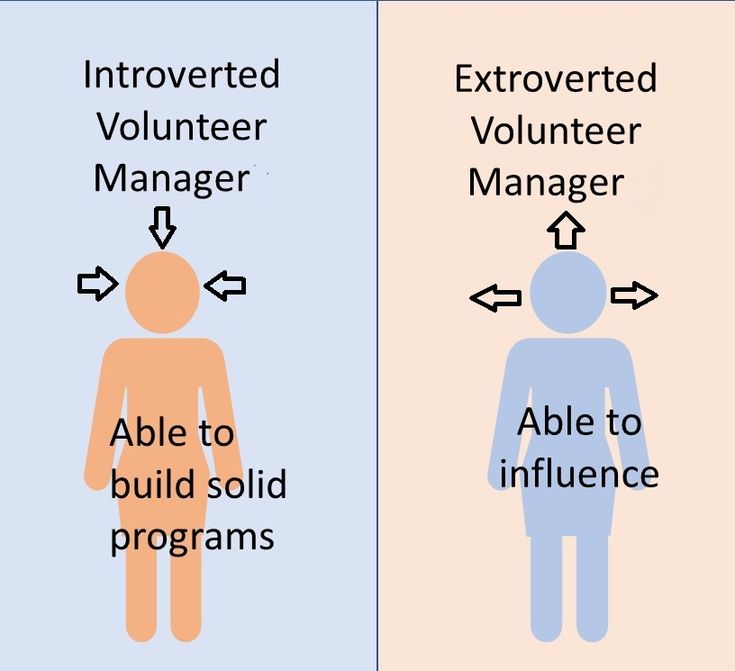 There are several very important reasons for this. The first reason is that parents have a responsibility to ensure safety
There are several very important reasons for this. The first reason is that parents have a responsibility to ensure safety
Myth: Introverted children are shy
Myth: Introverted children are shy Fact: Introversion is often confused with shyness. This misunderstanding arises from the fact that introversion is evaluated only from the point of view of the lack of propensity for introverted children to communicate. Introversion affects the character of the child as a whole,
Myth: Introverted children are unfriendly
Myth: Introverted children are unfriendly Fact: Introverts can be very friendly, they just don't show it in certain situations. For example, Matthew, our exemplary little introvert, whom I talked about at the beginning of the chapter, is very friendly and affable. He loves
Myth: Introverted children are not interested in other people
Myth: Introverted children are not interested in other people.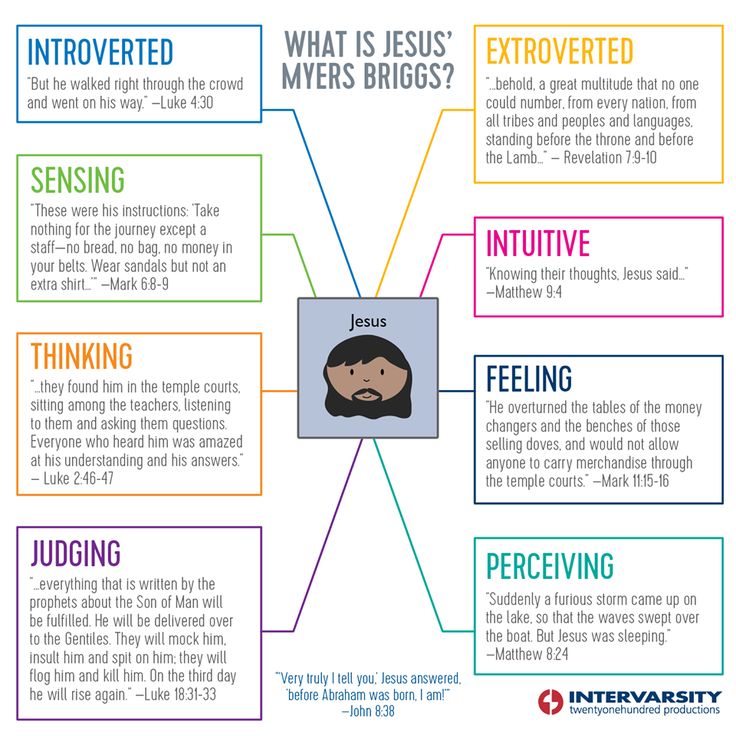 Fact: Introverted children are very interested in other people! But an introvert is not able to immediately digest a lot of information, and therefore introverts - despite the fact that they love to communicate with people and learn a lot about them - prefer
Fact: Introverted children are very interested in other people! But an introvert is not able to immediately digest a lot of information, and therefore introverts - despite the fact that they love to communicate with people and learn a lot about them - prefer
Myth: Introverted children are self-absorbed
Myth: Introverted children are self-absorbed. Fact: It is true that introverts are focused on their own thoughts and experiences, but at the same time they are very interested in knowing what other people think and feel. Introverts tend to be tolerant of dissenters. But in a strange
Chapter 5 Love Care and Daily Bread Introverted Children Flourish in Calm and Predictable Conditions
Chapter 5 Love care and daily bread Introverted children thrive in calm and predictable environments. The environment is an extension of our body.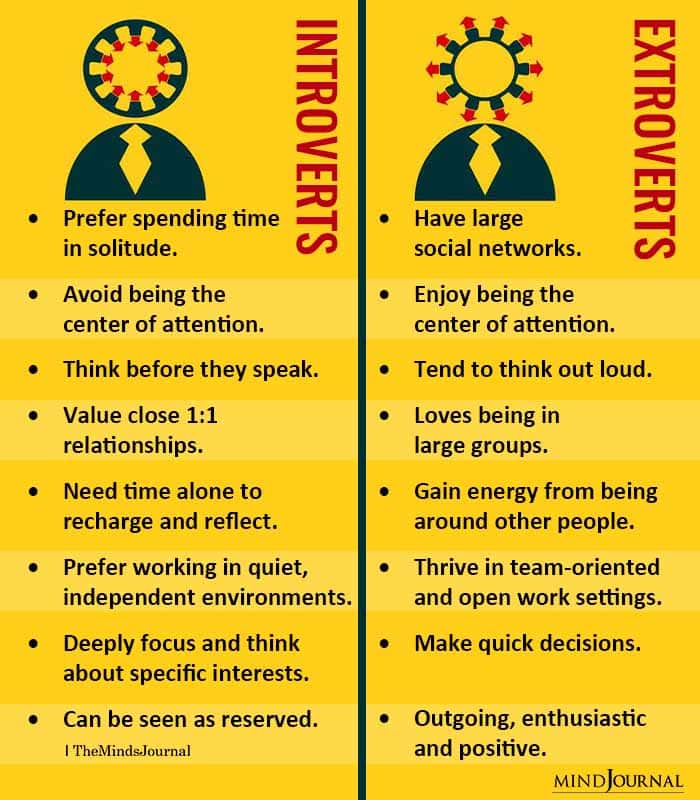 Peace must reign in it. Deepak Chopra In the previous chapter, we discussed global issues - how to raise a confident
Peace must reign in it. Deepak Chopra In the previous chapter, we discussed global issues - how to raise a confident
Both parents and children are introverts
Both parents and children are introverts If both parents and children are introverts, then, as a rule, they have enough small family joys of life. They enjoy spending time at home, watching movies, reading books, sitting comfortably on the couch, or doing nothing at all, just sitting
Both parents and children are extroverts
Both parents and children are extroverts Such families rarely stay in one place. They are usually very active. Extroverts are passionate about play, work, love to be the center of attention and remain true to their company, their circle of friends. They like being in
Introverted parents and extroverted children
Introvert Parents and Extrovert Children Introverted parents raising an extroverted child remind me of people who have grabbed the tiger by the tail.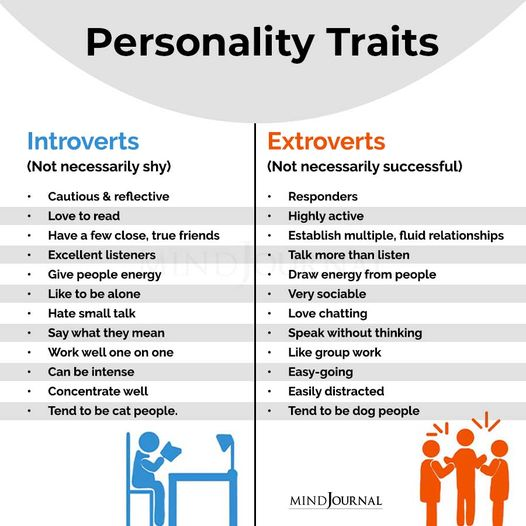 Approximately this is how Jacqueline Bouvier felt when she married a typical representative of the crazy Kennedy clan and gave birth to him
Approximately this is how Jacqueline Bouvier felt when she married a typical representative of the crazy Kennedy clan and gave birth to him
Introverted parents and their children - "outsiders" and "insiders"
Introverted parents and their children - "outsiders" and "insiders" Several children with different characters is a real challenge for introvert parents, especially if the family is incomplete. You are torn apart and still cannot please all your children at the same time. Most
Extroverted parents and their children - "outsiders" and "insiders"
Extroverted parents and their children - "outsiders" and "insiders" In a family where parents are extroverts and children have different personalities, an introverted child may feel like an “outsider”. He does not like noisy companies and fun, he willingly sits at home and enjoys peace and
Chapter 10 Introverted Children in Kindergarten and School If you understand what makes introverts good at school, you can help them succeed in school
Chapter 10 Introvert children in kindergarten and at school If you understand what allows introverts to study well, you can help them successfully overcome the school course. Once we expand the boundaries of our mind for a new idea, we will never return it to its former limits. Oliver
Once we expand the boundaries of our mind for a new idea, we will never return it to its former limits. Oliver
How Introverted Children Learn
How do introverted children learn? I am sure that in the development of a child everything is interconnected - what happened before, what is happening now, and what will happen in the future. Fred Rogers Whether a child is an introvert or an extrovert largely determines how they learn
12 Introvert Thoughts You Didn't Know
February 3, 2017 Relations
Do you feel like your friend or acquaintance is constantly avoiding you? Or just don't like it? Do not rush to conclusions. Maybe he's just an introvert.
Share
0 Introverts are not hermits who hate everyone around them. In fact, they really like to chat with close friends or people who share their interests (but the art of small talk is clearly not for them). Introverts also like to seek adventure on their own head, they just don’t always need company for this. They can be great leaders, good listeners, and devoted friends. After all, introverts are people too. But sometimes they can be very difficult to understand ... and forgive.
In fact, they really like to chat with close friends or people who share their interests (but the art of small talk is clearly not for them). Introverts also like to seek adventure on their own head, they just don’t always need company for this. They can be great leaders, good listeners, and devoted friends. After all, introverts are people too. But sometimes they can be very difficult to understand ... and forgive.
If, when interacting with introverts, you are increasingly asking yourself the questions “Why is he acting so strangely?”, “What is wrong with me?”, “Am I a bad conversationalist?”, “Is he bored with me?”, “Am I annoying? ”,“ Hey, where did he run away to? ”, It’s better to immediately discard self-digging and read about what strange thoughts sometimes come to the mind of representatives of this psychotype. And if you are an introvert ... well, you yourself know everything.
1. I hope no one tries to drag me out of the house tonight
We all need to get under the covers sometimes, turn off the phone and spend the whole day in blissful doing nothing.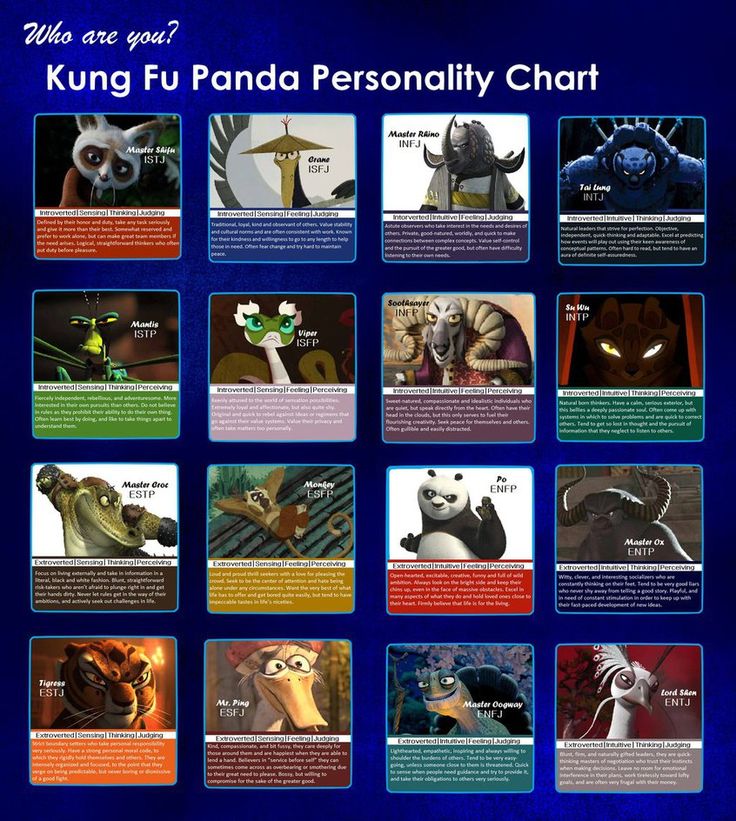 But for introverts, this desire comes much more often.
But for introverts, this desire comes much more often.
Therefore, don't be surprised that sometimes your introverted friend or acquaintance will refuse to go to the movies and fun parties, explaining this by a headache, a bunch of things to do, the need to celebrate the cat's birthday, and so on. Just be prepared to hear "no".
And don't try to surprise an introvert and disturb his self-imposed seclusion. Otherwise, from your own experience, make sure that shyness has nothing to do with introversion.
2. If I quickly run from the bathroom to my room, then maybe the neighbor will not notice me
Sometimes introverts feel the need to hide from their roommates. If you are the neighbor, don't worry. Most likely, it's not about you. It's just that sometimes introverts hide from even the nicest people, just to avoid having to exchange a few words with them. So if you see your neighbor running, be understanding and don't show it.
3. I hope someone here took a pet with them
Yes, introverts do not hate others (at least not more often than everyone else). But sometimes they feel much more comfortable in the company of our smaller brothers. The dog will not judge you for not going to university, will not force you to talk about the weather and politics or take pictures with her. Sometimes this is exactly what an introvert's ideal companion should be.
But sometimes they feel much more comfortable in the company of our smaller brothers. The dog will not judge you for not going to university, will not force you to talk about the weather and politics or take pictures with her. Sometimes this is exactly what an introvert's ideal companion should be.
4. Who is calling me from this number? Everyone who knows me knows that I hate talking on the phone
Usually introverts don't like talking on the phone, so calls from unknown numbers send them into a panic. If they do not wait for a call from someone specific, then most likely they simply will not answer. And even if you call from your previous number, it is unlikely that they will talk to you for more than five minutes. Unless you are on the other side of the planet.
This item also has a positive side. If your introvert buddy finally decided to call you, you really mean a lot to him. Rejoice: this is indeed an achievement.
5. I need people to be around right now, but I don't want to talk to anyone.
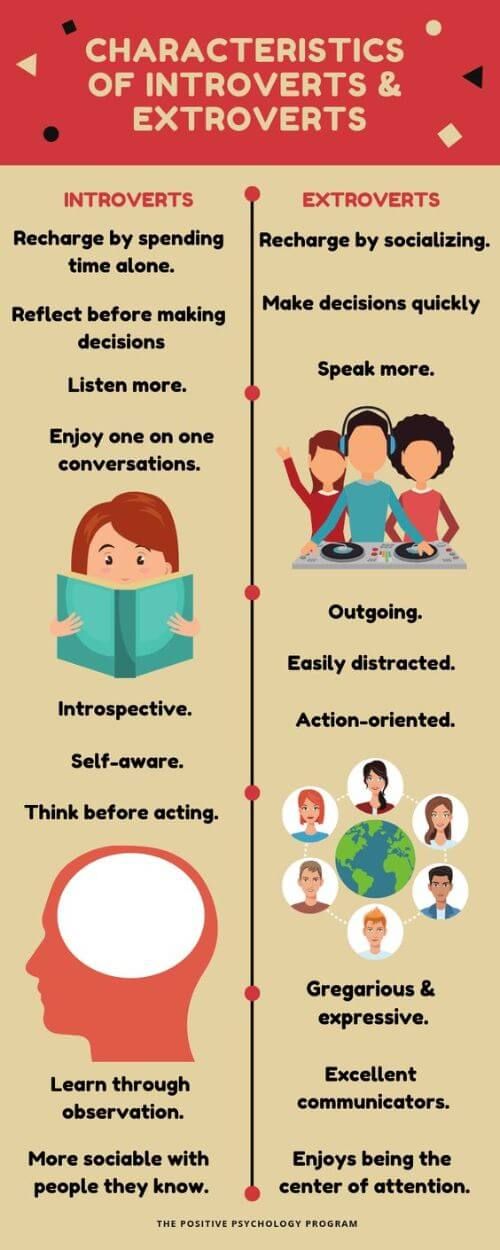
It is because of this thought that introverts are very careful in choosing people to communicate with. Yes, being friends with or dating an introvert can sometimes be difficult, especially if you're an extrovert.
There are days when introverts want to do something alone: read a book or watch TV. But at the same time they want to feel the presence of another person. This is a special type of loneliness that is unlikely to be understood by extroverts.
If you are an introvert, we wish you to always have someone to call to you in such cases.
6. I wish my neighbors were a little less friendly
Naturally, introverts don't dream of rude neighbors. But there are very few things that cause them the same anxiety as neighbors who are overly involved. If they constantly ask how things are, or, worse, strive to visit without an invitation, this is a real disaster for an introvert.
7. I will only go there if I can go home at any time.
Introverts always like to have a plan to escape from a party.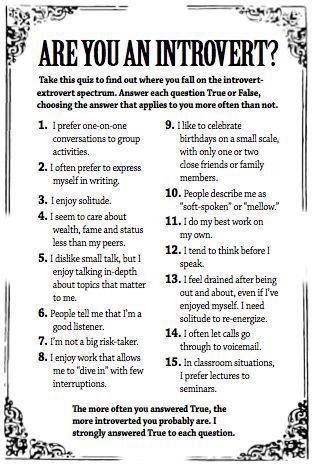 Therefore, they often go to a meeting in their car. This is especially true for parties that they do not want to go to in advance.
Therefore, they often go to a meeting in their car. This is especially true for parties that they do not want to go to in advance.
8. I'd rather stay with my cat
Well, everything is clear here. Catching someone else's pet at a party is a success. But for an introvert, no one can be better than their pet. Even people. Especially people.
Who else will always understand you, never betray you, never disappoint you, and never hurt you (well, except by digging their claws into you)? For an introvert, the answer is more than obvious.
9. It's good that this party is not far from my house
When an introvert is going to a party (unless, of course, it is at his best friend's house and not in his favorite bar), he worries much less when he knows that his house is nearby. It’s easier for introverts to get out of their comfort zone if it doesn’t have to move away from the most comfortable place for them.
10. Wouldn't it be better to read a book?
Of course, extroverts also love to read. But perhaps only introverts will understand what it's like: in the midst of a party in a noisy bar or any other place where they would have to party to the fullest, start thinking about the book that they left at home.
11. Please don't start a conversation with me just because we're sitting next to each other.
In cafes, cinemas, on airplanes—literally anywhere people can sit next to each other—introverts repeat this mantra over and over again. It's not that they don't like to talk. In fact, most introverts really like to find out something interesting about people they don't know. What they don't like is having to carry on a conversation with a complete stranger. This causes introverts a terrible discomfort.
12. I could sit in my pajamas now and watch my favorite TV series
Okay, okay. Of course, this thought is not limited to introverts.






